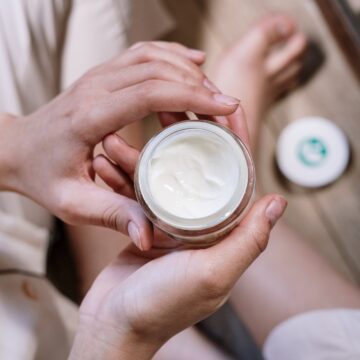
- Skincare products may contain many ingredients that come from unusual sources.
- Snail excretes mucin that can boost collagen production.
- Cactus can protect the skin from sun damage.
Skincare products contain many ingredients. Some of these ingredients have been proven effective through much research, and some may only be add-ons.
To know which of the different skincare ingredients do make a difference in your skin, here are what dermatologists have found out.
1. Red algae

Red algae contain a pigment called phycoerythrin, which can reflect red light and absorb blue light. A study published in the Free Radical and Biology journal suggests that blue light coming from electronic gadgets can hasten premature skin aging. Aging is caused by free radicals through the degradation of collagen and elastin, leading to hyperpigmentation. According to Sheel Desai Solomon, a dermatologist in North Carolina, red algae contains many antioxidants that can fight off radicals.
2. Yeast

Board-certified dermatologist Robert Anolik of the Laser and Skin Surgery Center of New York explains that yeast contains a peptide that enhances sirtuin production. Sirtuin is a protein that has been linked to aging and longevity by influencing cells that produce collagen and elastin. These components function to keep the skin tight and elastic.
3. Snail mucin

Solomon shares that snails excrete mucin, which helps them protect and repair their injuries. In skincare products, it is usually an added ingredient in eye facial creams and serums, and is used for skin hydration and increased collagen production. Many Korean skincare products contain this specific ingredient, and users attest to its good results.
While these ingredients have not been under much research, some research using snail mucin has shown positive results, including 25 people in a double-randomized study. The participants used a product with snail secretion for three months, and the appearance of their crow-feet and fine lines improved.
4. Cactus

Cactus contains a substantial amount of water, which makes them great for skin hydration. Besides, they contain antioxidants, electrolytes, and vitamins to protect against sun damage and improve complexion. Cactus is often an added ingredient in facial creams for its moisturizing and soothing properties.
5. Squalane

Squalane comes from squalene, which used to be harvested from shark liver oil and processed to make it an ingredient for skincare products. Naturally, squalene is produced by the sebaceous glands, which helps in skin hydration and moisturization. Jennifer Herrmann, a board-certified dermatologist in Beverly Hills, California, shares that squalane shows its effect by coating the skin to lock moisture.
6. Sea Kelp and Sea Weeds

Sea kelp and seaweeds are usually added in night creams and eye creams. While they have antioxidant properties, Herrmann thinks they cannot enter the skin barrier; hence, they cannot exert their effect.
7. Bio-placenta

Bio-placenta has been claimed to smoothen skin and eliminate lines and wrinkles, but experts explained that these claims have not yet been proven scientifically.
8. Kale

Kale is rich in antioxidants and vitamin C, known to be good for skin health. But as a skincare ingredient, it is much too big to penetrate the skin barrier to exert its effect.
Source: Everyday Health
